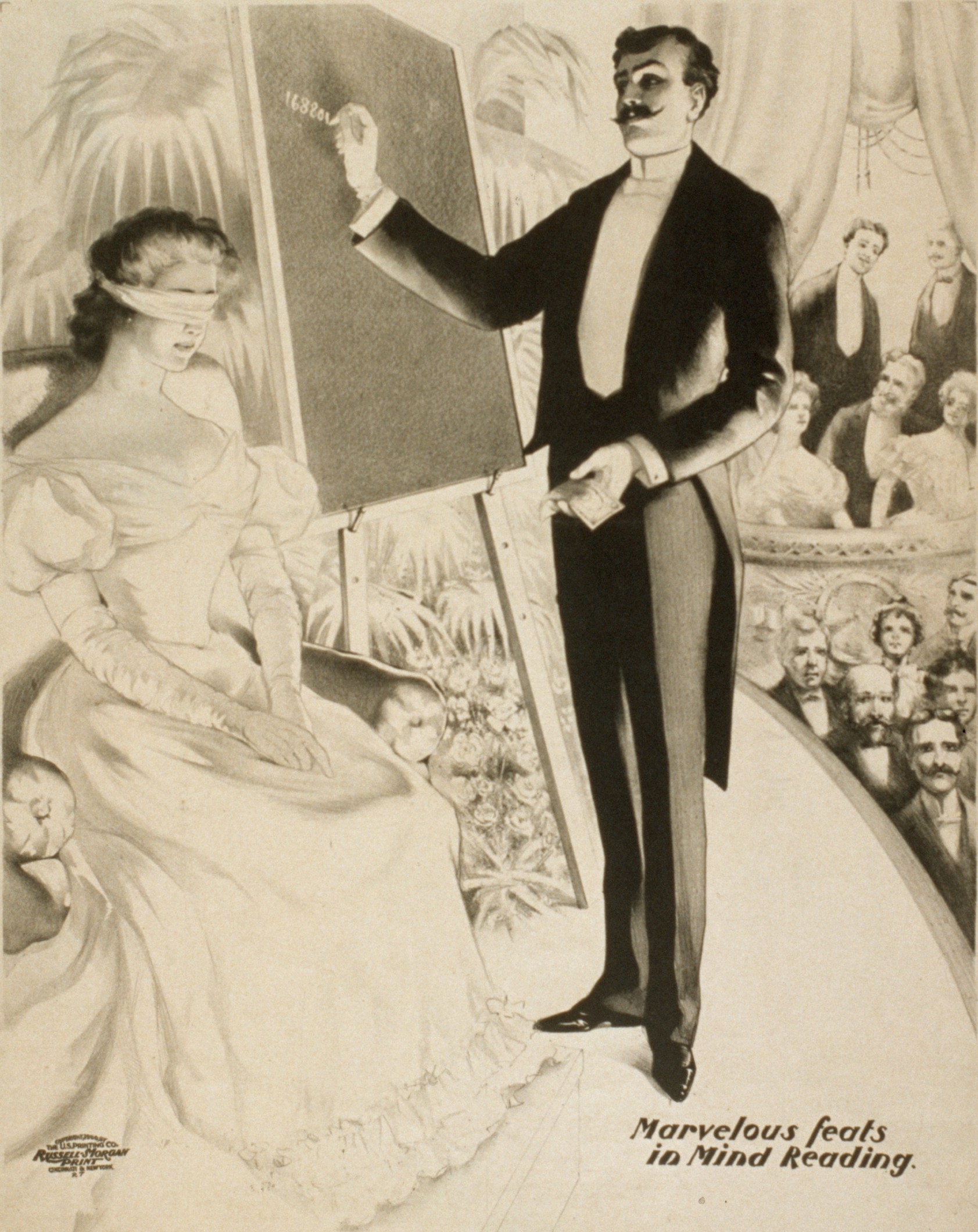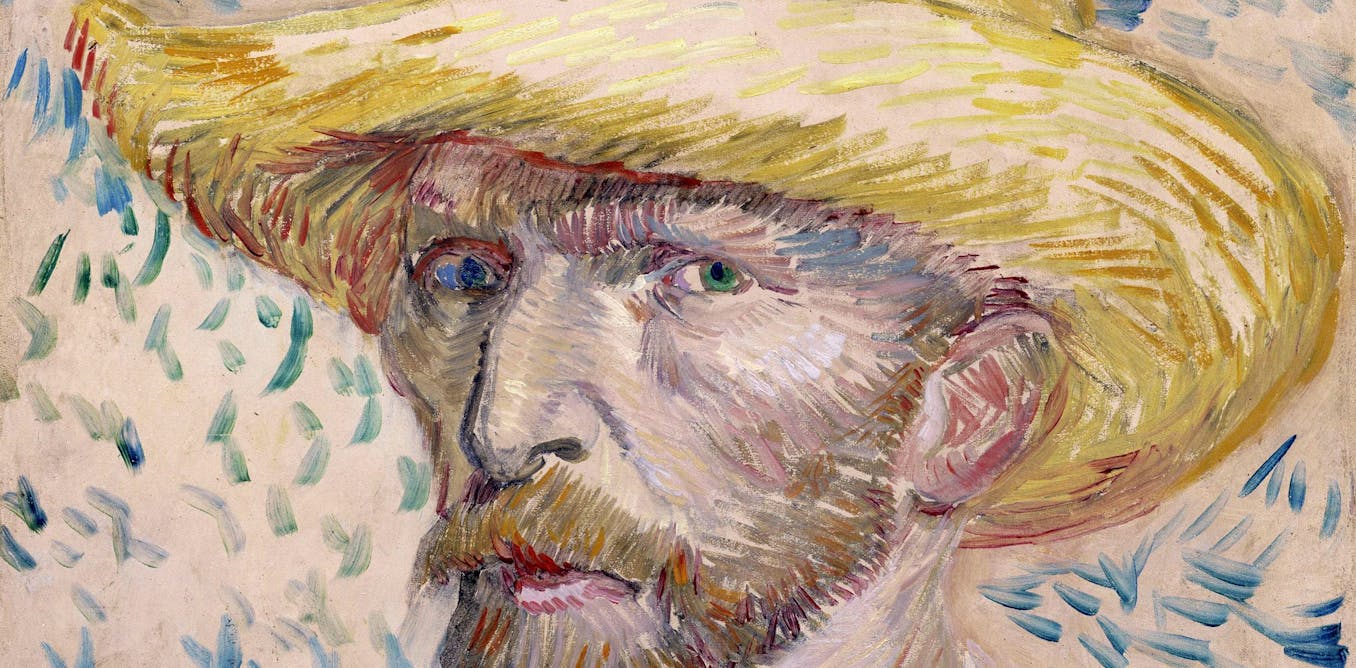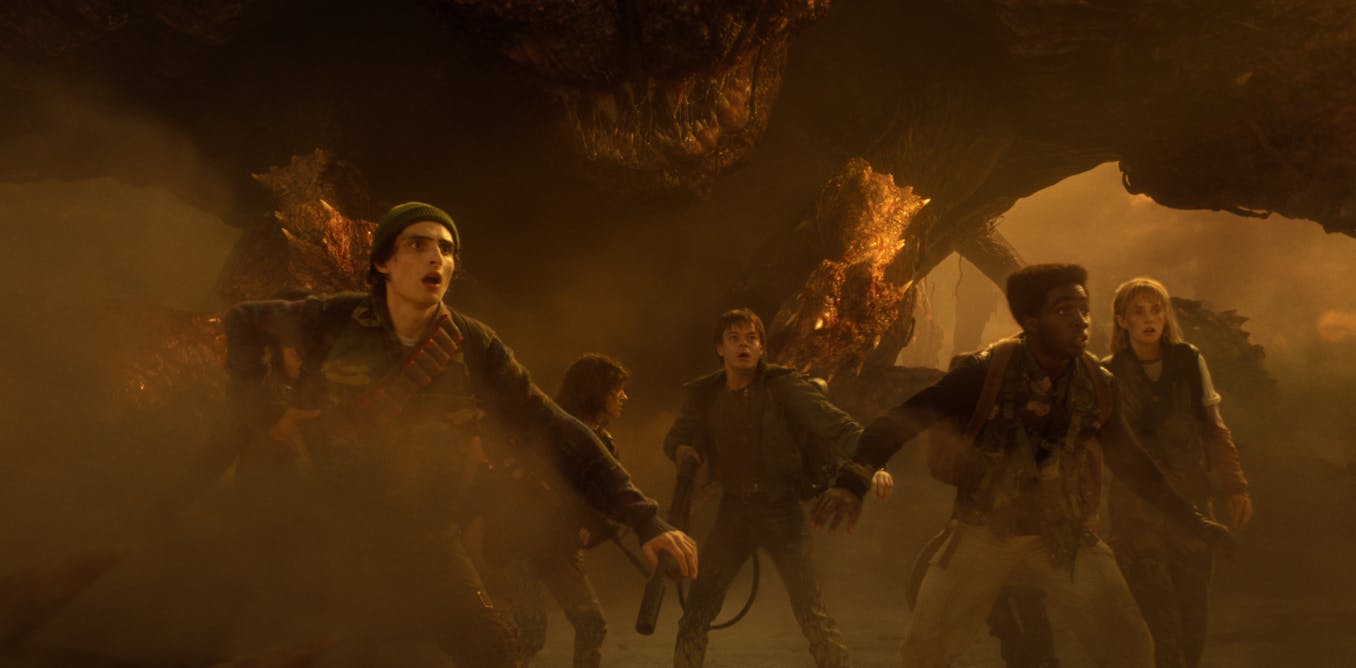What if suspending your disbelief could help make the world a better place, beginning with the way you see yourself? As it turns out, you may be able to trick your mind into discovering your hidden potential.
Mentalism is a performance art that uses psychological techniques to evoke a sense of the supernatural. Mentalists leverage subtle cues, both verbal and non-verbal, to guide their audience toward collaborative moments of awe. A cunning blend of reality and illusion, mentalism is now being combined with principles from positive psychology to expand its value beyond the “magical.”
To shed some light on the topic, Big Think caught up with Scott Barry Kaufman, a professor of psychology at Columbia University and the director of the Center for Human Potential. Kaufman, who also goes by the stage name The Amazing Dr. Scott, is among the top 1% most cited scientists in the world for his groundbreaking research on intelligence, creativity, and human potential. After stumbling upon mentalism as a hobby, he came to see how it could be used not only to entertain but to inspire and help people better understand themselves.

Big Think: How did you get into mentalism?
The Amazing Dr. Scott: I’m talking as The Amazing Dr. Scott, but my other hat, Scott Barry Kaufman, spent many years teaching courses in cognitive science and human intelligence. In particular, he taught cognitive science at NYU when he first started his career and would incorporate [mentalist] Derren Brown’s videos to illustrate what he was teaching about perception and psychological illusions.
Fast forward to more recent times, I saw a Vegas show called “The Mentalist” by Gerry McCambridge — one of my first times seeing a mentalist show in person. He called out, “Is there anyone whose name starts with the letter S here?” and I raised my hand. Some other guy raised his hand, and I was basically like, “Put your hand down” to the other guy. He looked at me and said, “Stand up” and “What brings you to Vegas?” I was like, “Oh, well, I’m on a me-cation. You know, it’s when you go by yourself and no one has to bother you.” And everyone laughed. He said, “You’re working on this new book, right?” I couldn’t believe he knew that. “What’s holding you back from your dream of becoming a bestseller?” I said, “I don’t know, maybe my confidence.” He’s like, “Nothing, Scott Barry Kaufman. Nothing is holding you back.” And then he gave me his magic bracelet to look at every time I needed to believe in myself.
I watched that entire show, and it occurred to me that mentalism could be a way of not only influencing people but emotionally impacting their lives in a more profound way than just my science has done. Once I got back from Vegas, I immediately went down a mentalism rabbit hole.
Big Think: Could you share some of the psychological principles you use when you perform?
The Amazing Dr. Scott: Virtually every professional mentalist will admit that they’re not supernatural psychics. Derren Brown is very rational, analytical, and skeptical. That’s something I was attracted to about him. He has done episodes where he’s given everyone the same astrology reading and showed that they all thought it was special to them. So I think it’s important for mentalists who are not billing themselves as authentic psychics to say that they’re using a combination of psychological techniques, misdirection, and performance.
A lot of it comes down to performance. It’s all about the play! You’re having a playful interaction with another human who’s opted into playtime and the creativity of what you’re creating. There are magic methods that you combine with psychological cold reading and psychology.
I also think leaving the person understanding themselves better and what they’re capable of would be a great outcome of a mentalism performance.
The Amazing Dr. Scott
I’m still humbly in the learning stage. I don’t claim to be Derren Brown yet. I’m still in awe of [people like] The Amazing Kreskin. He was all about incorporating genuine psychology into his magic, and he really showed the general public that what we can do with our minds is far greater than we realize. At the end of the day, that’s my motivation as well.
Big Think: What percentage of a performance is verbal versus body language versus some other means of influence?
The Amazing Dr. Scott: I would say you have to be cooking on all cylinders with all your senses. You have to pay attention. There are things that people reveal to you they don’t know they’re revealing to you. But if you listen and are astute — this is where my twenty-five years of psychology knowledge can come in, like memory techniques that allow you to immediately associate words with images in your mind so you can remember them better — the more you can keep in mind the information you’re gathering about people and also bring in methods of misdirection.
I keep returning to Derren Brown, but he’s the master of psychological misdirection. While everyone’s looking over here, he’s setting up the next thing over there, and you have no idea. So much of it taps into psychological principles of top-down and bottom-up perception — particularly top-down perception, how our narratives and our ways of seeing what we expect influence what we do see. That’s a big part of mentalism and why mentalists can get away with so much seemingly amazing stuff. That principle in psychology allows you to alter people’s perceptions of what they thought was possible.
Big Think: How could mentalism be used to empower people?
The Amazing Dr. Scott: I’ve been trying to incorporate lots of different positive psychology research. I want to talk about the research in a way that isn’t boring and then illustrate it. Like the science of character strengths: We all have signature strengths that we don’t utilize regularly. I’m working on this routine where I have people talk about a time they were at their best, and I try to guess what their top three character strengths are. I also have them [privately] choose three cards that mention their top strengths, and then, just by interacting with them, I figure out what their top three strengths are and encourage them to use them more in their daily lives.
Mentalism shouldn’t be all about, “Look at me as the magician, aren’t I amazing?” Maybe that’s part of it — creating awe and wonder — but I also think leaving the person understanding themselves better and what they’re capable of would be a great outcome of a mentalism performance.
Big Think: Is there a research field studying mentalism?
The Amazing Dr. Scott: There is a burgeoning field trying to understand the personality traits of those who enjoy magic and the psychology behind some of the magic in a formal research setting. Personally, I’ve conducted research on intelligence and creativity, and now I want to be more practical by emotionally and psychologically impacting people for the betterment of their lives.
Big Think: Do you think that there’s a certain type of personality that’s more predisposed to being good at mentalism?
The Amazing Dr. Scott: It depends on what you want your character to be. It’s like anything for self-actualization: You suit it for your persona. Maybe you want to be a Criss Angel, who has an early background traveling with big stage performers and people with huge showmanship. I feel more comfortable not being overtly showman but more laid back, like David Blaine. You’re not expecting to have your mind blown with that presentation style. He’s like, “Just take a card, no big deal.” To me, that’s what the payoff is.
I think anyone can pick the subset of themselves that is well-matched to the persona they want to create, but not everyone will be equally motivated to become a magician or mentalist.
Big Think: What’s your plan for the Amazing Dr. Scott?
The Amazing Dr. Scott: Everyone starts somewhere, and there’s a natural progression to these things. I’ve started putting in my dues with street magic. I set up a table on the beach path in Santa Monica and wrote in Sharpie on a sign, “Free Magic. I Can Read Your Mind.” I set up small shows with my friends and their families, but it would be cool to do an “Unlock Your Mind with the Amazing Dr. Scott” stage show someday. Or start with a parlor show as a test run, maybe at a comedy club, and then revise and get feedback [for a] full-stage show that interweaves my personal story with research in positive and humanistic psychology and the science of human potential.
I want to emphasize that there are so many great people in this world.
The Amazing Dr. Scott
I also have a keen interest in stand-up comedy and used to be a professional opera singer, so I can bring in some of those performance elements as well. The whole focus of “Unlock Your Mind with The Amazing Dr. Scott” would be on the audience, though, and how amazing all of us are. I’ve spent my whole career studying human potential and creativity, and this seems to fit naturally into my arsenal.
Big Think: Anything else you’d like to share on the mentalism topic?
The Amazing Dr. Scott: I want to emphasize that there are so many great people in this world, and I’m learning from them. I want to give a big shout-out to Michael Gutenplan, who has been really supportive. He calls himself a “third-generation psychic,” and performs to raving reviews. I went to college at Carnegie Mellon with him, and here we are, over twenty years later, and he’s been helpful in leading me in the right direction. The British magician Aidan the Wizard has also been really supportive. Then there are mentalists I learn by watching them perform — for instance, Oz Pearlman, Banachek, and, of course, Derren Brown, who I keep mentioning. So there are a lot of people I think are amazing.
The Amazing Dr. Scott’s alter ego, Scott Barry Kaufman, has a book coming out next April.
This article Unlock your potential with mentalism: An interview with Scott Barry Kaufman is featured on Big Think.

The post “Unlock your potential with mentalism: An interview with Scott Barry Kaufman” by Saga Briggs was published on 09/10/2024 by bigthink.com



































Leave a Reply